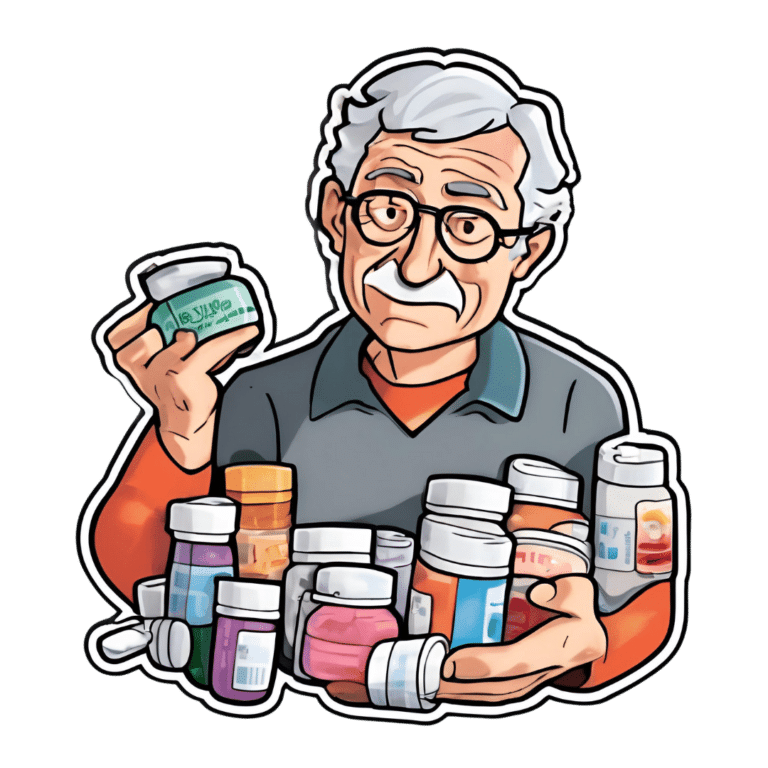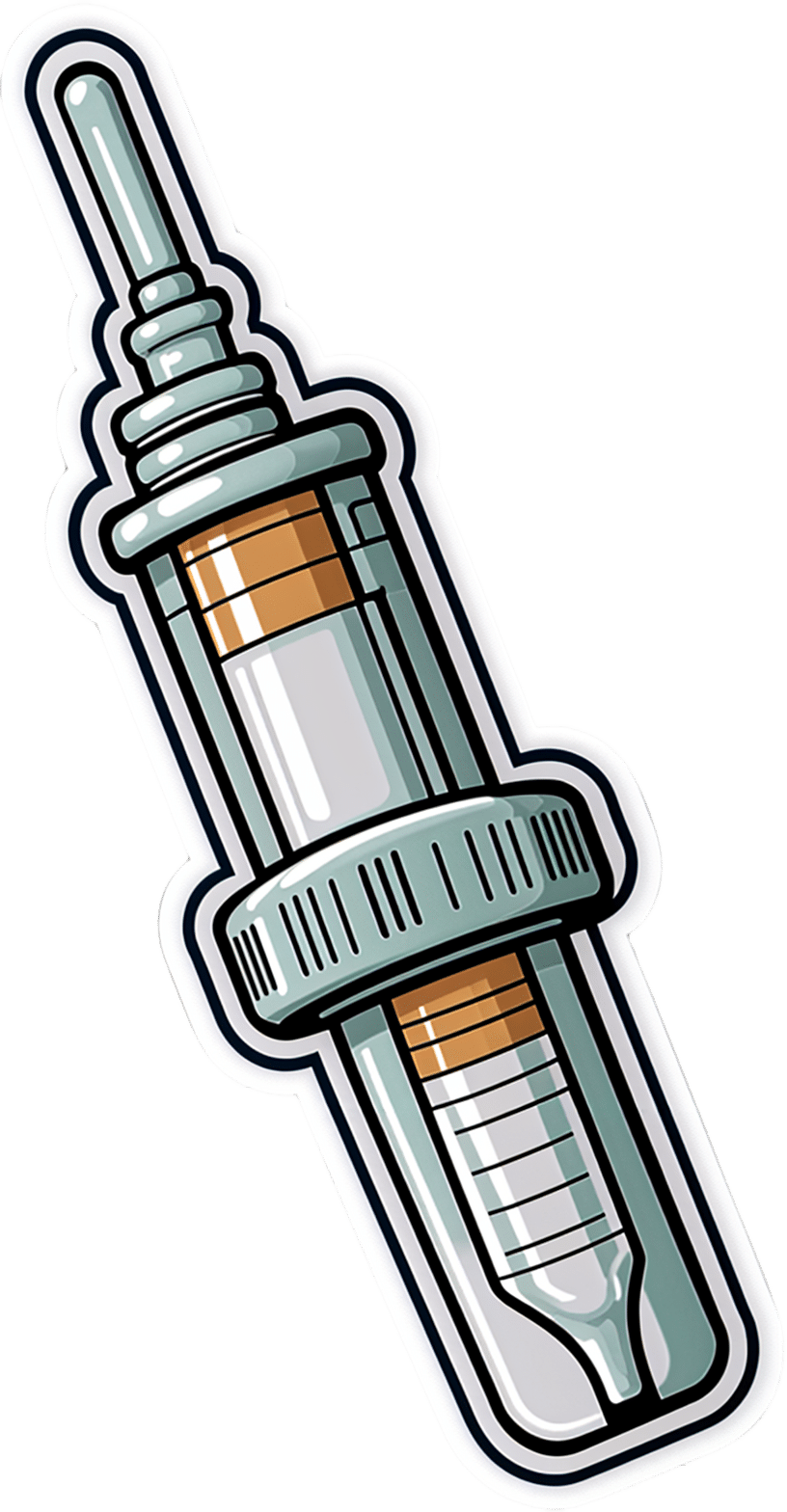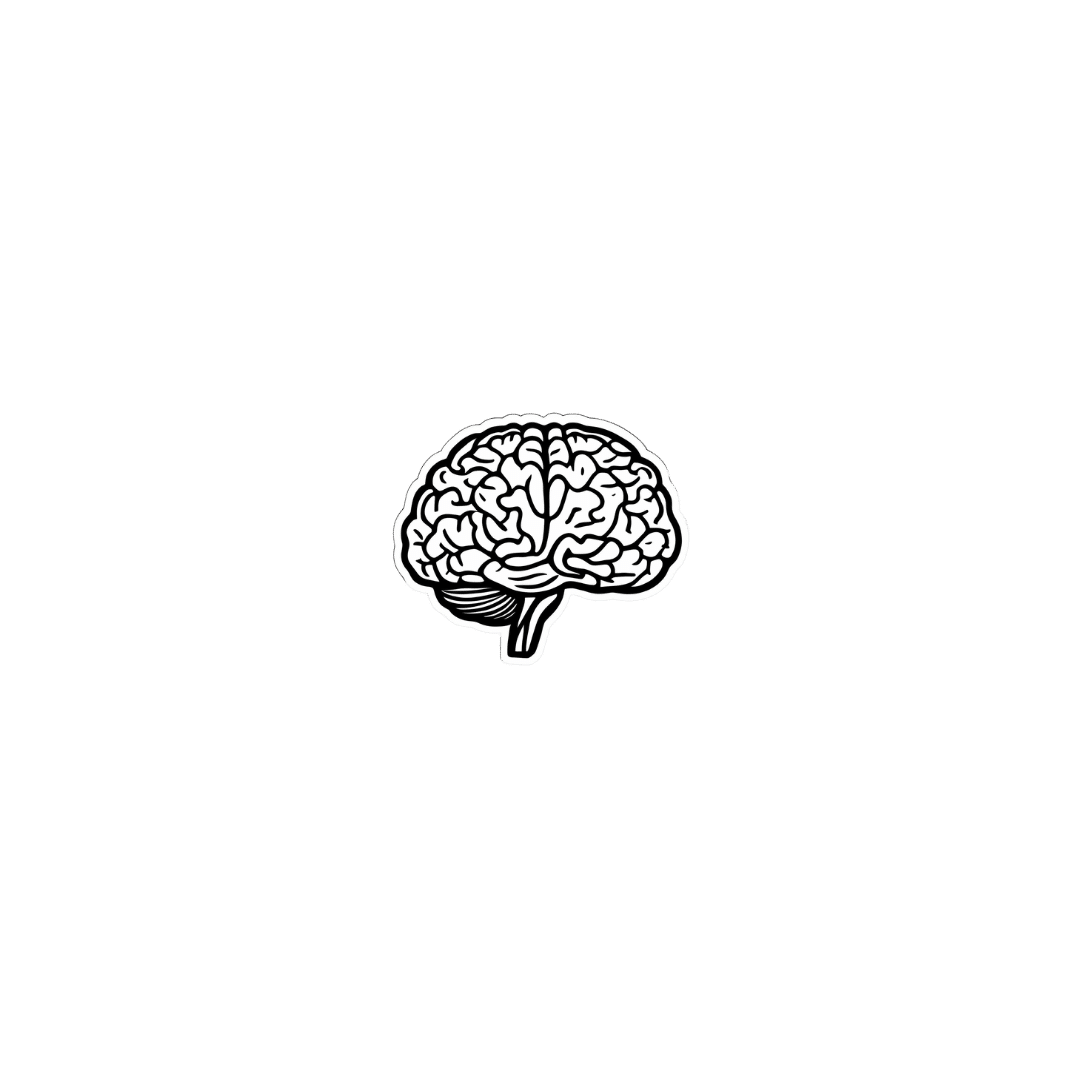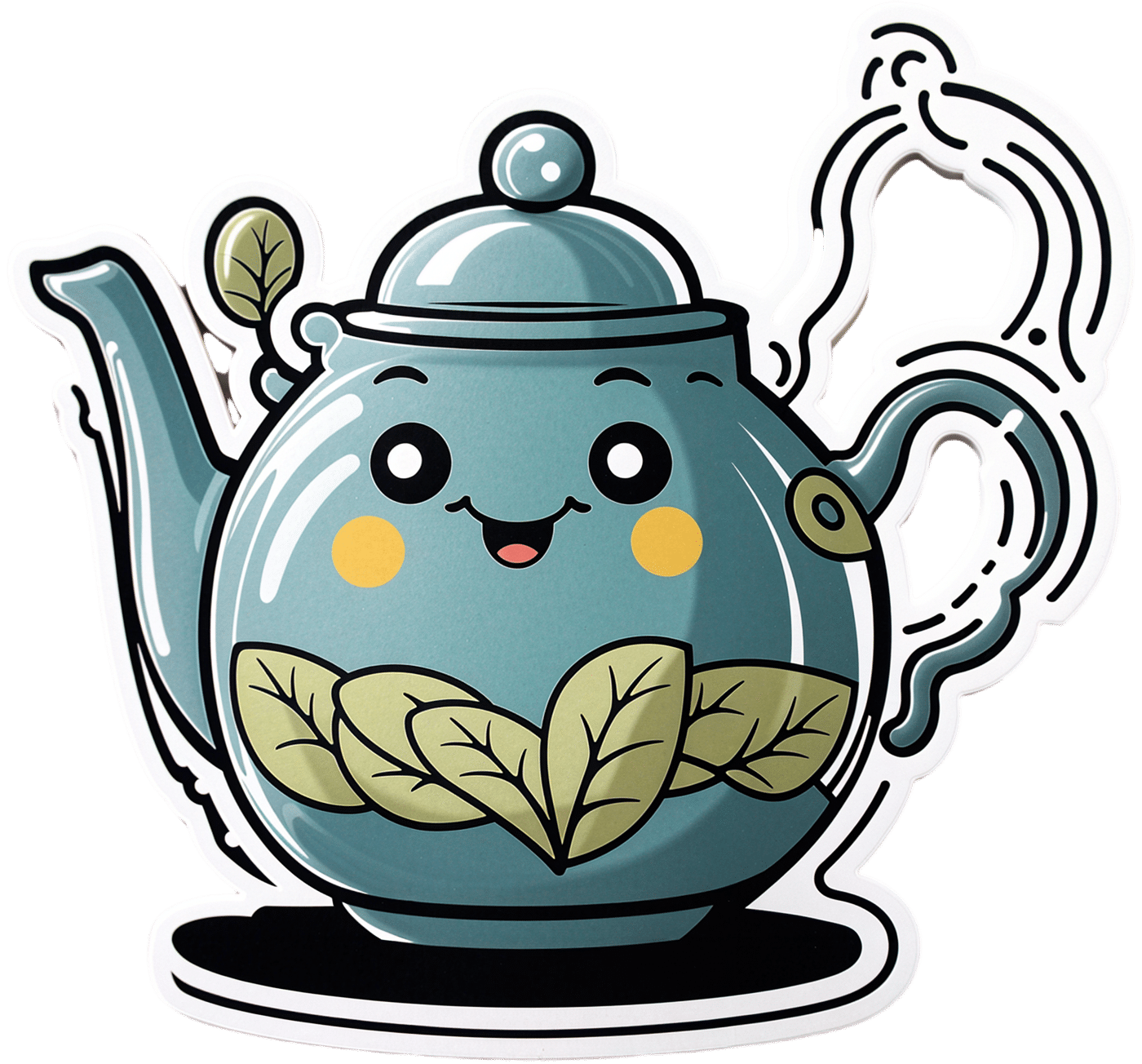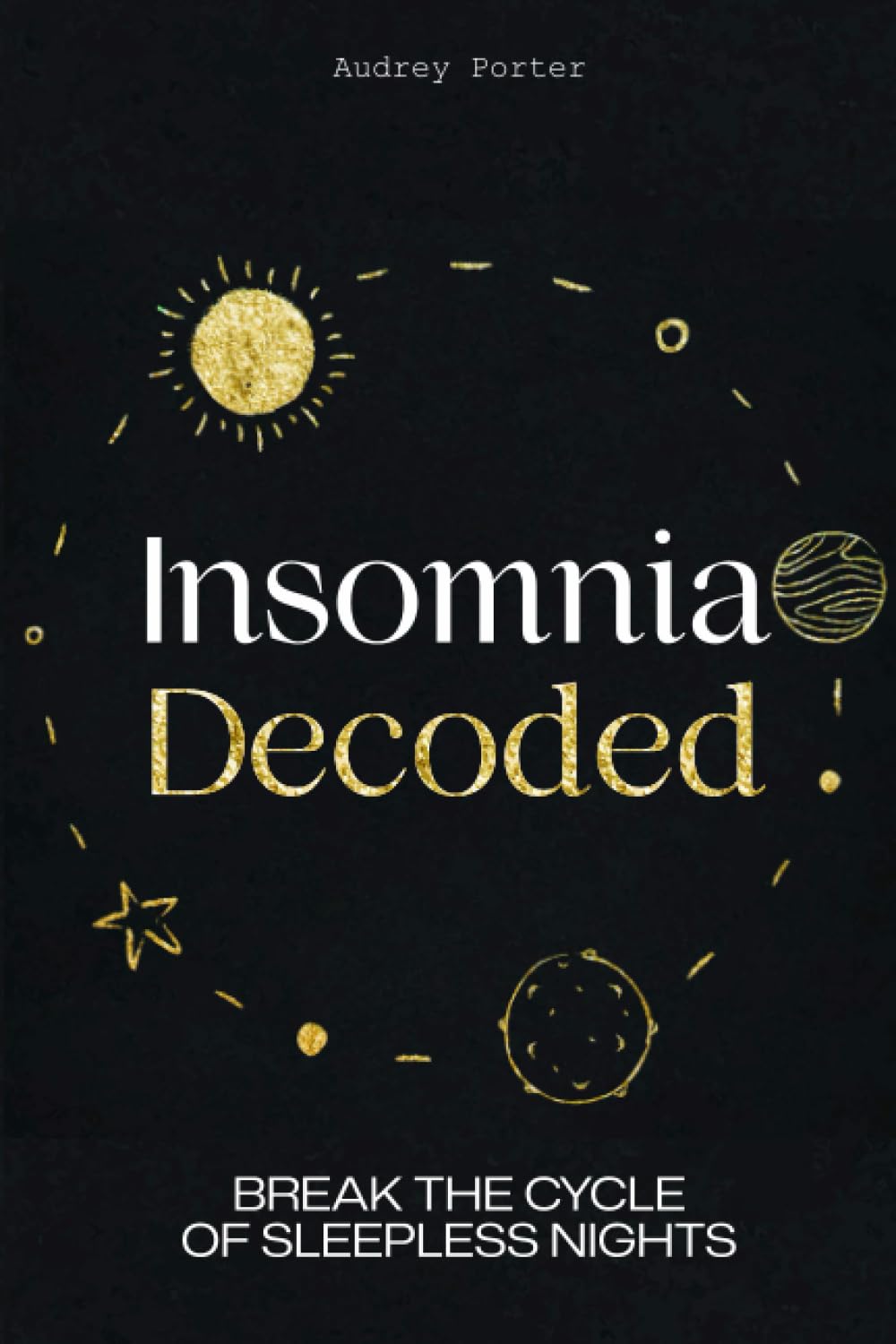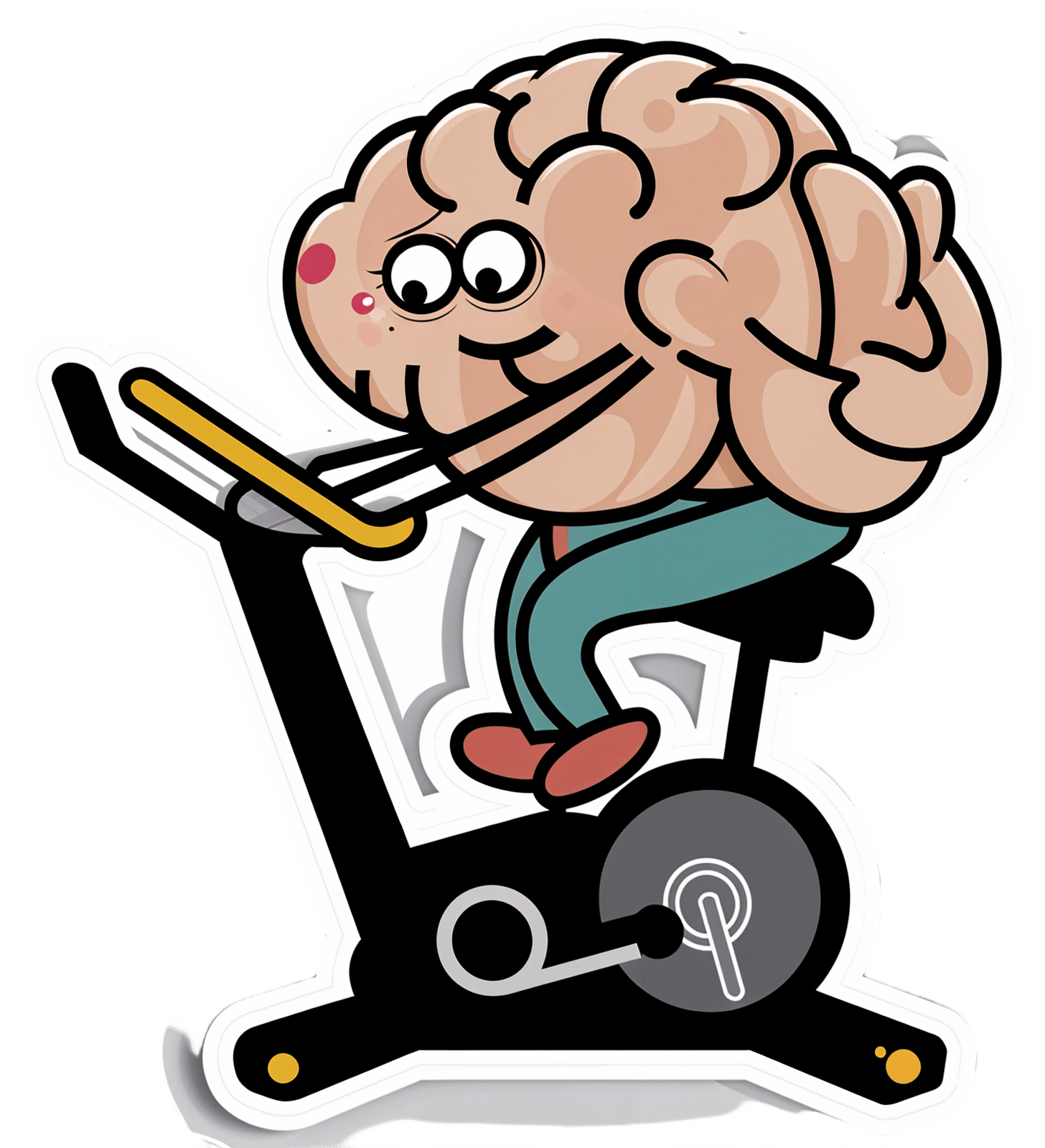
How To Reduce Your Alzheimer’s Risk
10almonds is reader-supported. We may, at no cost to you, receive a portion of sales if you purchase a product through a link in this article.
Reduce Your Alzheimer’s Risk
Alzheimer’s is just one cause of dementia, but it’s a very notable one, not least of all because it’s
- a) the most common cause of dementia, and
- b) a measurably terminal disease.
For that reason we’re focusing on Alzheimer’s today, although most of the advice will go for avoiding dementia in general.
First, some things not everyone knows about Alzheimer’s:
- Alzheimer’s is a terminal disease.
- People who get a diagnosis at age 60 are typically given 4–8 years to live.
- Some soldier on for as many as 20, but those are rare outliers.
- Alzheimer’s begins 20 years or more before other symptoms start to develop.
- This makes this information very relevant for younger people approaching 40, for example.
- Alzheimer’s accounts for 60–80% of dementia, and affects around 6% of people over 60.
- By the age of 65, that figure is 10%. By the age of 70, however, the percentage is still about the same—this is because of the mortality rate preventing the accumulation of Alzheimer’s patients over time.
Want to know more? Read: 2023 Alzheimer’s Disease Facts And Figures Special Report ← this is a very comprehensive downloadablereference, by the way, including a lot of information about diagnosis, treatmentpathways, and earlyinterventions.
Speaking of diagnosis…
Know what the symptoms are… and aren’t!
Forgetting your car keys can be frustrating. Forgetting them frequently can be worrying.
But: there’s a difference between forgetting your car keys, and forgetting what car keys are used for. The latter is the kind of memory loss that’s more of a red flag for Alzheimer’s.
Similarly: forgetting someone’s name can be embarrassing. Forgetting someone’s name, asking them, forgetting asking them, asking them again, forgetting again (lather rinse repeat) is more of a red flag for Alzheimer’s.
There are other symptoms too, some of them less commonly known:
❝Difficulty remembering recent conversations, names or events; apathy; and depression are often early symptoms. Communication problems, confusion, poor judgment and behavioral changes may occur next. Difficulty walking, speaking, and swallowing are common in the late stages of the disease❞
If you or a loved one are experiencing worrying symptoms: when it comes to diagnosis and intervention, sooner is a lot better than later, so do talk to your doctor.
As for reducing your risk? First, the obvious stuff:
The usual 5 things that go for almost everything:
- Have a good diet—the Mediterranean Diet is once again recommended (we expect this will not be a surprise to regular readers!)
- Get regular exercise—in the case of avoiding Alzheimer’s and other dementias, typically the most important thing here is heart health, so getting regular cardiovascular exercise, such walking, running, or dancing is great. Cycling too. Swimming, not so much. Not that swimming’s bad or anything, it’s just that when your body is horizontal, the heart has less work to do, especially in the upper part of the body, because it’s not defying gravity. Similarly, yoga is great for the health but won’t particularly help with this, nor will weight training.
- Get good sleep—as we get older, we tend to need less sleep, and tend more towards the lower end of the standard “7–9 hours” prescription, but getting at least those 7 hours makes a huge difference.
- Cut down (or eliminate) alcohol consumption—and especially avoid binge-drinking. While “binge-drinking” is typically associated with young people, that Christmas party where that one uncle gets very drunk is also binge-drinking, for example. Plus, heavy drinking in early life has also been correlated with higher risk of Alzheimer’s later.
- Don’t smoke. It’s bad for everything, and Alzheimer’s risk is no exception.
How much do lifestyle changes alone make a difference?
They make a big difference. This 2022 population-based cohort study (so: huge sample size) looked at people who had 4–5 of the healthy lifestyle factors being studied, vs people who had 0–1 of them. They found:
❝A healthy lifestyle was associated with a longer life expectancy among men and women, and they lived a larger proportion of their remaining years without Alzheimer’s dementia.❞
The numbers of years involved by the way ranged between 3 and 20 years, in terms of life expectancy and years without or with Alzheimer’s, with the average increase of healthy life years being approximately the same as the average increase in years. This is important, because:
A lot of people think “well if I’m going to go senile, I might as well [unhealthy choice that shortens lifespan]”, but they misunderstand a critical factor:
The unhealthy choices will reduce their healthy life years, and simply bring the unhealthy ones (and subsequent death) sooner. If you’re going to spend your last few years in ill-health, it’s better to do so at 90 than 50.
The other thing you may already know… And a thing about it that not everyone considers:
Keeping cognitively active is important. This much is broadly known by the general public, and to clinicians, this was the fourth “healthy factor” in the list of five (instead of the sleep that we put there, because we were listing the 5 things that go for most preventable health issues).
Everyone leaps to mention sudoku at this point, so if that’s your thing, great, enjoy it! (This writer personally enjoys chess, which isn’t everyone’s cup of tea; if it yours though, you can come join her on Chess.com and we’ll keep sharp together)
But the more parts of your mental faculties you keep active, the better. Remember, brainpower (as with many things in health and life) is a matter of “use it or lose it” and this is on a “per skill” basis!
What this means: doing sudoku (a number-based puzzle game) or chess (great as it may be) won’t help as much for keeping your language skills intact, for example. Given that language skills are one of the most impactful and key faculties to get lost to Alzheimer’s disease, neglecting such would be quite an oversight!
Some good ways to keep your language skills tip-top:
- Read—but read something challenging, if possible. It doesn’t have to be Thomas Scanlon’s What We Owe To Each Other, but it should be more challenging than a tabloid, for example. In fact, on the topic of examples:
- This newsletter is written to be easy to read, while not shying away from complex ideas or hard science. Our mission is literally to “make [well-sourced, science-based] health and productivity crazy simple”.
- But the academic papers that we link? Those aren’t written to be easy to read. Go read them, or at least the abstracts (in academia, an abstract is essentially an up-front summary, and is usually the first thing you’ll see when you click a link to a study or such). Challenge yourself!
- Write—compared to reading/listening, producing language is a (related, but) somewhat separate skill. Just ask any foreign language learner which is more challenging: reading or writing!
- Journaling is great, but writing for others is better (as then you’ll be forced to think more about it)
- Learn a foreign language—in this case, what matters it that you’re practicing and learning, so in the scale of easy to hard, or doesn’t matter if it’s Esperanto or Arabic. Duolingo is a great free resource that we recommend for this, and they have a wide range of extensive courses these days.
Now for the least obvious things…
Social contact is important.
Especially in older age, it’s easy to find oneself with fewer remaining friends and family, and getting out and about can be harder for everyone. Whatever our personal inclinations (some people being more introverted or less social than others), we are fundamentally a social species, and hundreds of thousands of years of evolution have built us around the idea that we will live our lives alongside others of our kind. And when we don’t, we don’t do as well.
See for example: Associations of Social Isolation and Loneliness With Later Dementia
If you can’t get out and about easily:
- Online socialising is still socializing.
- Online community is still community.
- Online conversations between friends are still conversations between friends.
If you don’t have much (or anyone) in the category of friends and family, join Facebook groups related to your interests, for example.
Berries are surprisingly good
^This may read like a headline from 200,000 BCE, but it’s relevant here!
Particularly recommended are:
- blueberries
- blackberries
- raspberries
- strawberries
- cranberries
We know that many of these berries seem to have a shelf-life of something like 30 minutes from time of purchase, but… Frozen and dried are perfectly good nutritionally, and in many cases, even better nutritionally than fresh.
Read: Effect of berry-based supplements and foods on cognitive function: a systematic review
Turmeric’s health benefits appear to include protecting against Alzheimer’s
Again, this is about risk reduction, and turmeric (also called curcumin, which is not the same as cumin) significantly reduces the build-up of amyloid plaques in the brain. Amyloid plaques are part of the progression of Alzheimer’s.
See for yourself: Protective Effects of Indian Spice Curcumin Against Amyloid Beta in Alzheimer’s Disease
If you don’t like it as a spice (and even if you do, you probably don’t want to put it in your food every day), you can easily get it as a supplement in capsule form.
Lower your homocysteine levels
Lower our what now? Homocysteine is an amino acid used for making certain proteins, and it’s a risk factor for Alzheimer’s.
Foods high in folate (and possible other B-vitamins) seem to lower homocysteine levels. Top choices include:
- Leafy greens
- Cruciferous vegetables
- Tomatoes
Get plenty of lutein
We did a main feature about specifically this a little while ago, so we’ll not repeat our work here, but lutein is found in, well, the same things we just listed above, and lower levels of lutein are associated with Alzheimer’s disease. It’s not a proven causative factor—we don’t know entirely what causes Alzheimer’s, just a lot of factors that have a high enough correlation that it’d be remiss to ignore them.
Catch up on our previous article: Brain Food? The Eyes Have It
Don’t Forget…
Did you arrive here from our newsletter? Don’t forget to return to the email to continue learning!
Recommended
Learn to Age Gracefully
Join the 98k+ American women taking control of their health & aging with our 100% free (and fun!) daily emails:
-
Dry Needling for Meralgia Paresthetica?
10almonds is reader-supported. We may, at no cost to you, receive a portion of sales if you purchase a product through a link in this article.
It’s Q&A Day at 10almonds!
Have a question or a request? We love to hear from you!
In cases where we’ve already covered something, we might link to what we wrote before, but will always be happy to revisit any of our topics again in the future too—there’s always more to say!
As ever: if the question/request can be answered briefly, we’ll do it here in our Q&A Thursday edition. If not, we’ll make a main feature of it shortly afterwards!
So, no question/request too big or small
❝Could you address dry needling, who should administer it, and could it be a remedy for meralgia paresthetica? If not, could you speak to home-based remedies for meralgia paresthetica? Thank you?❞
We’ll need to take a main feature some time to answer this one fully, but we will say some quick things here:
- Dry needling, much like acupuncture, has been found to help with pain relief.
- Meralgia paresthetica, being a neuropathy, may benefit from some things that benefit people with peripheral neuropathy, such as lion’s mane mushroom. There is definitely not research to support this hypothesis yet though (so far as we could find anyway; there is plenty to support lion’s mane helping with nerve regeneration in general, but nothing specific for meralgia paresthetica).
Some previous articles you might enjoy meanwhile:
- Pinpointing The Usefulness Of Acupuncture
- Science-Based Alternative Pain Relief
- Peripheral Neuropathy: How To Avoid It, Manage It, Treat It
- What Does Lion’s Mane Actually Do, Anyway?
Take care!
Share This Post
-
What Loneliness Does To Your Brain And Body
10almonds is reader-supported. We may, at no cost to you, receive a portion of sales if you purchase a product through a link in this article.
Spoiler: it’s nothing good (but it can be addressed!)
Not something to be ignored
Loneliness raises the risk of heart disease by 29% and the risk of stroke by 32%. It also brings about higher susceptibility to illness (flu, COVID, chronic pain, etc), as well as poor sleep quality and cognitive decline, possibly leading to dementia. Not only that, but it also promotes inflammation, and premature death (comparable to smoking).
This is because the lack of meaningful social connections activates the body’s stress response, which in turn increases paranoia, suspicion, and social withdrawal—which makes it harder to seek the social interaction needed to alleviate it.
On a neurological level, cortisol levels become imbalanced, and a faltering dopamine response leads to impulsive behaviors (e.g., drinking, gambling) to try to make up for it. Decreased serotonin, oxytocin, and natural opioids reduce feelings of happiness and negate pain relief.
As for combatting it, the first-line remedy is the obvious one: connecting with others improves emotional and physical wellbeing. However, it is recommended to aim for deep, meaningful connections that make you happy rather than just socializing for its own sake. It’s perfectly possible to be lonely in a crowd, after all.
A second-line remedy is to simply mitigate the harm by means of such things as art therapy and time in nature—they can’t completely replace human connection, but they can at least improve the neurophysiological situation (which in turn, might be enough of a stop-gap solution to enable a return to human connection).
For more on all of this, enjoy:
Click Here If The Embedded Video Doesn’t Load Automatically!
Want to learn more?
You might also like to read:
How To Beat Loneliness & Isolation
Take care!
Share This Post
-
Which Tea Is Best, By Science?
10almonds is reader-supported. We may, at no cost to you, receive a portion of sales if you purchase a product through a link in this article.
What kind of tea is best for the health?
It’s popular knowledge that tea is a healthful drink, and green tea tends to get the popular credit for “healthiest”.
Is that accurate? It depends on what you’re looking for…
Black
Its strong flavor packs in lots of polyphenols, often more than other kinds of tea. This brings some great benefits:
As well as effects beyond the obvious:
…and its cardioprotective benefits aren’t just about lowering blood pressure; it improves triglyceride levels as well as improving the LDL to HDL ratio:
The effect of black tea on risk factors of cardiovascular disease in a normal population
Finally (we could say more, but we only have so much room), black tea usually has the highest caffeine content, compared to other teas.
That’s good or bad depending on your own physiology and preferences, of course.
White
White tea hasn’t been processed as much as other kinds, so this one keeps more of its antioxidants, but that doesn’t mean it comes out on top; in this study of 30 teas, the white tea options ranked in the mid-to-low 20s:
White tea is also unusual in its relatively high fluoride content, which is consider a good thing:
White tea: A contributor to oral health
In case you were wondering about the safety of that…
Water Fluoridation: Is It Safe, And How Much Is Too Much?
Green
Green tea ranks almost as high as black tea, on average, for polyphenols.
Its antioxidant powers have given it a considerable anti-cancer potential, too:
- Green tea consumption and breast cancer risk or recurrence: a meta-analysis
- Green tea consumption and prostate cancer risk: a prospective study
…and many others, but you get the idea. Notably:
Green Tea Catechins: Nature’s Way of Preventing and Treating Cancer
…or to expand on that:
About green tea’s much higher levels of catechins, they also have a neuroprotective effect:
Green tea of course is also a great source of l-theanine, which we could write a whole main feature about, and we did:
Red
Also called “rooibos” or (literally translated from Afrikaans to English) “redbush”, it’s quite special in that despite being a “true tea” botanically and containing many of the same phytochemicals as the other teas, it has no caffeine.
There’s not nearly as much research for this as green tea, but here’s one that stood out:
However, in the search for the perfect cup of tea (in terms of phytochemical content), another set of researchers found:
❝The optimal cup was identified as sample steeped for 10 min or longer. The rooibos consumers did not consume it sufficiently, nor steeped it long enough. ❞
Read in full: Rooibos herbal tea: an optimal cup and its consumers
Bottom line
Black, white, green, and red teas all have their benefits, and ultimately the best one for you will probably be the one you enjoy drinking, and thus drink more of.
If trying to choose though, we offer the following summary:
- 🖤 Black tea: best for total beneficial phytochemicals
- 🤍 White tea:best for your oral health
- 💚 Green tea: best for your brain
- ❤️ Red tea: best if you want naturally caffeine-free
Enjoy!
Share This Post
Related Posts
-
7-Minute Face Fitness For Lymphatic Drainage & Youthful Jawline
10almonds is reader-supported. We may, at no cost to you, receive a portion of sales if you purchase a product through a link in this article.
Valeriia Veksler is a registered nurse with a background in cosmetic medicine. She’s been practicing for 7 years, and on the strength of that, is going to teach us how to give our face some love for 7 minutes:
The routine, step by step
Preparation: clean your face and apply your usual moisturizer. Breathe deeply: Inhale through the nose, exhale to release tension.
Neck massage: use fingertips in circular motion from the bottom of the neck to the hairline and back for 30 seconds. This helps promote blood flow to the face.
Sternocleidomastoid massage: use knuckles to massage in circles from the sternal area up to the jawline and down to the collarbone for 30 seconds. Keep posture straight, shoulders down, and relax muscles.
Collarbone pressure: apply and release pressure with fingertips above the collarbones for 30 seconds. This stimulates lymphatic flow and helps reduce puffiness.
Under-chin massage: use knuckles to massage side-to-side under the chin for 30 seconds. Relax the under-chin area and promote lymphatic drainage.
Jawline massage: with knuckles, massage from the chin towards the ears in circular motion for 30 seconds. Relax the jaw.
Nasolabial fold and nose massage: place index fingers near nostrils and move mouth in a “O” shape, then massage around the nostrils and up the nose for 30 seconds.
Smile line lift: press palms on the smile lines and slide hands up towards the temples for 30 seconds. This helps lift the face and sculpt cheekbones.
Under-eye massage: use index fingers in a hook shape, massaging under the eyes along the bone structure for 30 seconds. This promotes blood flow and lymphatic drainage.
Temple lift: use fingertips to lift the area near the left temple for 30 seconds, then assist with the opposite hand to lift further. Repeat on the other side. This reduces crow’s feet and lifts the corners of the eyes.
Forehead lift: place hands on the forehead, lock fingers, and gently elevate the skin upwards. Glide fingers towards the hairline for 30 seconds. This promotes blood flow and smooths the forehead.
Relax 11 Lines: place fingers at the center of the forehead, gently press into the tissue, and let them glide away from each other towards the eyebrows for 30 seconds.
Bonus:
- Ensure good posture throughout.
- Relax, stay mindful, and breathe deeply during the exercises.
- Feel the warmth and energy from improved circulation, after the routine.
For more on all of this plus a visual demonstration of everything, enjoy:
Click Here If The Embedded Video Doesn’t Load Automatically!
Want to learn more?
You might also like to read:
Top 10 Foods That Promote Lymphatic Drainage and Lymph Flow
Take care!
Don’t Forget…
Did you arrive here from our newsletter? Don’t forget to return to the email to continue learning!
Learn to Age Gracefully
Join the 98k+ American women taking control of their health & aging with our 100% free (and fun!) daily emails:
-
Ice Cream vs Fruit Sorbet – Which is Healthier?
10almonds is reader-supported. We may, at no cost to you, receive a portion of sales if you purchase a product through a link in this article.
Our Verdict
When comparing ice cream to fruit sorbet, we picked the ice cream.
Why?
Well, neither are great!
But the deciding factor is simple: ice cream has more nutrients to go with its sugar.
While “fruit is good” is a very reliable truism in and of itself, sorbet tends to be made with fruit juice (or at best, purée, which for these purposes is more or less the same) and sugar. The small vitamin content is nowhere near enough to make up for this. The fiber having been removed by juicing or puréeing, the fruit juice with added sugar is basically shooting glucose and fructose into your veins while doing little else.
Fruit juice (even freshly-pressed) is nowhere near in the same league of healthiness as actual fruit!
See also: Which Sugars Are Healthier, And Which Are Just The Same?
Ice cream, meanwhile, is also not exactly a health food. But it has at least some minerals worth speaking of (mostly: calcium, potassium, phosphorus), and some fat that a) can be used b) helps slightly slow the absorption of the sugars.
In short: please do not consider either of these things to be a health food. But if you’re going to choose one or the other (and are not lactose-intolerant), then ice cream has some small positives to go with its negatives.
Take care!
Don’t Forget…
Did you arrive here from our newsletter? Don’t forget to return to the email to continue learning!
Learn to Age Gracefully
Join the 98k+ American women taking control of their health & aging with our 100% free (and fun!) daily emails:
-
Insomnia Decoded – by Dr. Audrey Porter
10almonds is reader-supported. We may, at no cost to you, receive a portion of sales if you purchase a product through a link in this article.
We’ve written about sleep books before, so what makes this one different? Its major selling point is: most of the focus isn’t on the things that everyone already knows.
Yes, there’s a section on sleep hygiene and yes it’ll tell you to cut the caffeine and alcohol, but most of the advice here is beyond that.
Rather, it looks at finding out (if you don’t already know for sure) what is keeping you from healthy sleep, be it environmental, directly physical, or psychological, and breaking out of the stress-sleep cycle that often emerges from such.
The style is light and conversational, but includes plenty of science too; Dr. Porter knows her stuff.
Bottom line: if you feel like you know what you should be doing, but somehow life keeps conspiring to stop you from doing it, then this is the book that could help you break out that cycle.
Click here to check out Insomnia Decoded, and get regular healthy sleep!
Don’t Forget…
Did you arrive here from our newsletter? Don’t forget to return to the email to continue learning!
Learn to Age Gracefully
Join the 98k+ American women taking control of their health & aging with our 100% free (and fun!) daily emails:

